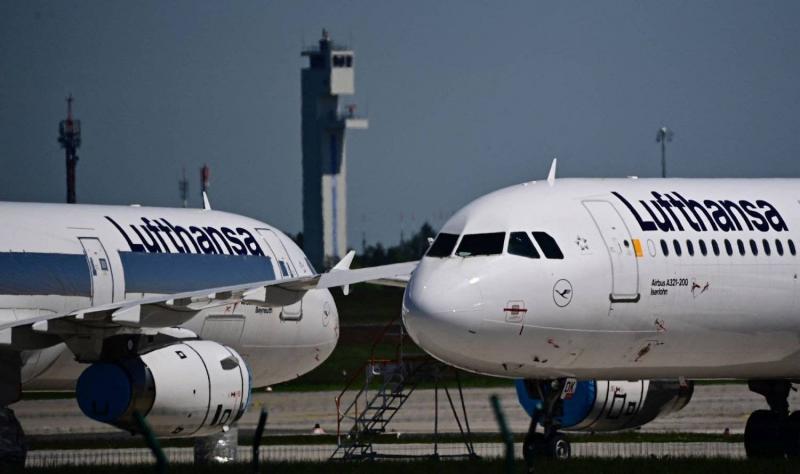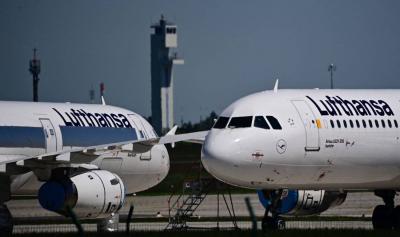Flight cancellations and turmoil in oil markets are occurring due to fears of escalating tensions in the Middle East, particularly concerns about the consequences if Tehran carries out its threats to retaliate against the airstrike that targeted its embassy compound in Damascus.
German airline Lufthansa has canceled its flights to Tehran and announced that it will extend this cancellation until Saturday, while Austrian Airlines will continue its flights to Tehran but will not allow the crew to overnight there, according to a report published by "Oil Price." Lufthansa and its subsidiary Austrian Airlines are the only two Western companies operating international flights to Tehran, with most services provided by Turkish and Middle Eastern airlines. Iranian airspace is also a key route for Emirates and Qatar Airways flights to Europe and North America. An Iranian news agency published a report in Arabic on the social media platform X indicating that airspace over Tehran was fully closed for military exercises but later deleted the report and denied it had published anything of the sort.
The United States has barred its embassy staff in Israel from traveling outside the major areas of Tel Aviv, Jerusalem, and Beersheba, while Russia has advised its citizens against traveling to the Middle East, particularly to Israel, Palestinian territories, and Lebanon. The Russian Foreign Ministry stated that "the tense situation in the Middle East continues." Such advisories were first issued by the Russian Foreign Ministry in October, urging Russians not to visit Israel and the Palestinian territories following the Hamas attack on Israel.
A report from Bloomberg stated that the United States and its allies believe that major missile or drone attacks by Iran or its proxies against Israel are imminent.
**Pressure on the Oil Market**
Amid statements from senior officials in Iran and Israel about carrying out and responding to attacks, pressure is mounting on oil markets that are already reeling from tensions in the Middle East, particularly those affecting maritime transport, like Houthi attacks on ships and oil tankers in the Red Sea.
In line with the tensions, oil prices rose at the beginning of trading on Thursday, increasing by a dollar per barrel in the previous session as traders braced for an escalation of the crisis and Iran’s threats. Iran is the third-largest oil producer in the Organization of the Petroleum Exporting Countries (OPEC). Oil prices retreated at settlement after stubborn inflation dampened hopes for a near-term reduction in U.S. interest rates, but fears of an Iranian attack on Israeli interests keep crude prices close to their highest levels in six months.
Brent crude futures reached $89.7 per barrel, while West Texas Intermediate crude was at $85 per barrel. OPEC forecasted strong fuel demand in the summer months on Thursday and maintained its relatively strong growth expectations for global oil demand in 2024, highlighting an unusual significant gap in demand forecasts.




